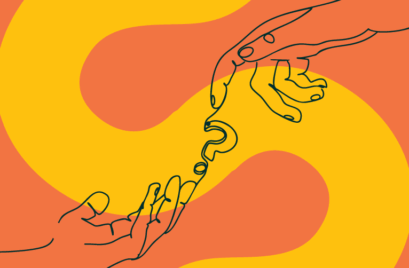
“The price of greatness is responsibility.” – Winston Churchill
There’s no doubt that greatness and responsibility are inextricably interlinked. But responsibility is often connected with another concept. Business thinkers can use the words ‘responsibility’ and ‘accountability’ almost interchangeably. Either that or they are nestled within each other’s definitions e.g., “accountability is a matter of taking responsibility for your actions”. These tendencies are not particularly useful for us as we try to understand these two important concepts and what they mean for the workplace and for leaders.
From our perspective there is a crucial difference between responsibility and accountability. A responsibility is a duty. Accountability is an agreement. In this way, while responsibility involves a moral element, we can think of accountability as being more of a mutual decision.
Of course, by entering into an agreement to do something, we take on duties. That is, we have a responsibility to fulfill the agreement. So, there is an interplay between these two concepts. However, we can have responsibilities from other sources than by agreement. We have responsibilities under the law and responsibilities to our loved ones and communities.
Understandably, then, for leaders who are trying to gain clarity and action on who is doing what, both responsibility and accountability are important. It’s important to have a clear agreement in place around roles and duties but also a commitment to following through on that agreement. When does that come together well? And perhaps even more importantly, when does it break down?
The Problem with Responsibility
In organisations, responsibility can pose some challenges. There is a well-known psychological phenomenon called the ‘diffusion of responsibility’. This is a tendency we see for individuals in a group situation to feel a decreased level of responsibility around group roles or responsibilities. Diffusion of responsibility can manifest in some awful consequences – like the Bystander Effect – where no one helps a person in trouble out because they assume or expect someone else will. In the workplace, we see behaviours like social loafing and other examples of people shirking their responsibilities on the basis that others will pick up the work.
On the other end of the spectrum, we encounter certain personality types who have an overactive sense of responsibility. They feel they must take on and do everything – that they must make up for the inaction of others. This can be a harmful attitude too as it ultimately leads to burnout and disengagement.
So, if we know that group situations lend themselves to these types of social psychology, how can we build responsibility to follow through with the agreements we make? What are the elements that contribute to a workplace where people feel the right amount of responsibility and lean in collectively?
Tying Responsibility and Accountability
Building responsibility – through COMMITMENT:
Responsibility is fundamentally supported by a belief in doing the right thing. Building responsibility can be a challenge because it is connected to values. This means leaders must work at creating the right culture that supports responsibility. Consider actions like:
- Hiring individuals based on shared values
- Speaking regularly to the team about the underlying values that you believe are important in your work
- Rewarding behaviour that demonstrates responsibility
- Making responsibility a pillar of your leadership training to support with role modelling and recognition
Building accountability – through CLARITY:
As we’ve talked about elsewhere, accountability is a shared agreement. The more clarity, touchpoints and reinforcements for this agreement, the stronger it is. This might include regularly revisiting team goals and outputs in a monthly meeting.
Responsibility and accountability are interconnected concepts that sit at the heart of how we work together in groups to achieve shared outcomes. Building both will set you up for a workplace culture that prioritises clarity and commitment – and, ultimately, shared outcomes.







